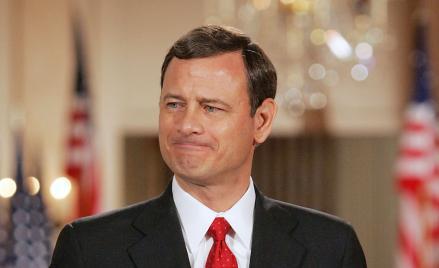Shelby County v. Holder, decided Tuesday, struck down a key part of the Voting Rights Act (the part requiring certain states with a history of racial discrimination in voting to obtain federal permission in advance to change their voting procedures—called “preclearance”) as violating the “fundamental principle of equal sovereignty” of the states. This is a principle of constitutional law of which I had never heard—for the excellent reason that, as Eric points out and I will elaborate upon briefly, there is no such principle.
Section 3 of Article IV of the Constitution authorizes Congress to admit new states to the Union, as it has done many times, but says nothing about the terms on which they are to be admitted. Usually when new states are admitted it is on the same terms as the existing ones. But not always: Utah and several other western states were required as a condition of admission to outlaw polygamy—a novel condition. Not that any other state permitted polygamy. But other states, not having been subjected to such a condition when they were admitted, were free to permit polygamy without risk of being expelled from the Union.
It’s possible that the federal government would subject a state to unequal treatment so arbitrary and oppressive as to justify a ruling that Congress exceeded its constitutional authority. But Justice Ruth Bader Ginsburg’s very impressive opinion (in part because of its even tone), at a length (37 pages) that, remarkably, one would not like to see shortened—marshals convincing evidence that the reasons Congress has for treating some states differently for purposes of the Voting Rights Act are not arbitrary, though they are less needful than they were in 1965, when the law was first enacted.
That evidence—the record before Congress—should have been the end of this case. For apart from the spurious principle of equal sovereignty, all that the majority had on which to base its decision was tenderness for “states’ rights.” One doubts that this actually is a primary value for any of the justices. The same conservative majority that decided Shelby had rejected a more cogent argument for states’ rights when it held three years ago in McDonald v. City of Chicago that the Second Amendment—a provision of the Constitution designed to secure state autonomy—specifically, the right of states to maintain their own little armies, the militias, against federal abolition—creates rights against states’ limiting gun ownership. It seems that the court’s regard is not for states’ rights in some abstract sense but for particular policies that a majority of justices strongly favors.
The majority opinion in Shelby acknowledges that racial discrimination in voting continues, but notes that the situation has improved since 1965 and that the procedures in the current Voting Rights Act do not make a clean fit with the current forms and pattern of discrimination. Ordinarily however a federal statute is not invalidated on the ground that it’s dated. I hardly think the Supreme Court justices believe (as did Alexander Bickel) that “desuetude” is a constitutional doctrine. And the criticisms of the statute in the majority opinion are rather tepid. That’s why the court’s invocation of “equal sovereignty” is an indispensable prop of the decision. But, as I said, there is no doctrine of equal sovereignty. The opinion rests on air.
Emily calls Chief Justice Roberts a “stealth conservative” whose “genius” is to conceal his political agenda. That’s a roundabout way of saying that a modest, pedestrian opinion may be more effective than one that, being forthright and candid, thrusts its inadequacies in the reader’s eye. But the real key to “stealth” jurisprudence is patient, crafty incrementalism (no conservative monopoly on that strategy, of course). It’s a strategy illustrated by Shelby’s predecessor, the 2009 decision in Northwest Austin Municipal Utility District No. 1 v. Holder, heavily cited in Shelby. That was a case in which Chief Justice Roberts, again writing for the majority, criticized the same part of the Voting Rights Act, and invoked the same imaginary doctrine of “equal sovereignty,” yet without actually invalidating anything, and so avoiding a dissent by the liberal justices. So now in Shelby he could quote extensively from his opinion in Northwest Austin as if to imply that really there was nothing new here—just a small and logical next step.
Was that a disreputable tactic, or merely a clever one?
